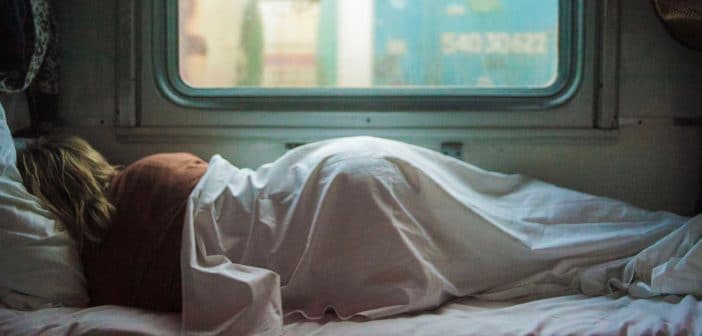 If you—or someone close to you—is dealing with addiction, you know how hard it can be sometimes. Addiction takes a toll on all aspects of your wellbeing, and sleep is one of them.
If you—or someone close to you—is dealing with addiction, you know how hard it can be sometimes. Addiction takes a toll on all aspects of your wellbeing, and sleep is one of them.
Sleep disruption can affect the recovery process and even result in a relapse, so one of the main goals of any rehabilitation procedure is to ensure that the person gets proper sleep.
The great thing is, it’s easier than it seems.
The tips below will help you drastically improve the quality of sleep for yourself or your close ones.
The Connection Between Sleep Quality and Substance Abuse
Sleep disruptions are the most common complaint among those who are undergoing rehabilitation therapy. A study published in the Psychiatry journal estimated that chances of developing co-morbid sleeping disorders are five to 10 times higher in individuals with substance abuse compared to healthy individuals.
That’s because substance abuse and sleep quality are closely connected and can adversely affect each other. See for yourself.
- Psychoactive substances are used to induce sleep. Some people use alcohol or other drugs as a way to wind down and relax before sleep. Obviously, the brain creates a strong association between taking drugs and falling asleep afterward; that’s how the addiction appears. And when the drug is removed from the daily ritual, it becomes much harder for a person to fall asleep.
- An overdose may lead to sleep disruptions. When a person loses control over their drug intake, side effects appear. For example, alcohol can alter the sleep structure and mess with the REM-sleep phase, affecting your productivity and emotional regulation.
- The cycle repeats. Impulsive and antagonizing behaviors are the common consequences of poor sleep, so the person tries to compensate for that by consuming even bigger amounts of alcohol or taking other drugs.
Along with the adverse impact on the nervous system, substance abuse affects overall health. Thus, a person might develop chronic conditions that will also add up to sleep disruptions and decrease the quality of life.
How to Help Yourself Sleep Better During Addiction Treatment
Now, if you’re ready to work towards recovery and reduce the risk of relapses, you need to treat your sleep seriously.
The best thing is, by simply following a few simple steps listed below, you can eliminate your sleep issues and improve your overall condition:
- Develop a solid schedule. Sleep hygiene is incredibly important. It allows your brain to remodel positive associations and shift them from taking drugs to doing healthy activities, such as reading or jogging, for example. Also, by making the times of falling asleep and waking up fixed, you bring the balance to your circadian rhythms, which will also contribute to better sleep.
- Choose the right mattress. As easy as it seems, you may not be sleeping well because of your mattress. There are many different types of mattresses today, so you should be able to find the most comfortable one for you quite easily.
- Keep your room cool. Your surroundings should promote quality sleep. And the best way to make your surroundings help you is to drop the temperature in your room a bit. Studies found that the optimal temperature for sound sleep falls between 60 and 67F, so adjust your thermostat according to this range.
- Befriend darkness. By dimming all the screens and lights, you create optimal conditions for melatonin production. Melatonin is our sleep molecule, and people with substance abuse disorder typically have impaired production of this hormone. By making your room dark you can naturally increase the levels of melatonin and hence, sleep better.
- Remove any annoying noises. Along with lights, you can also try to remove unwanted noise, which can be especially annoying if you live in an urban area. Use a white noise generator that can overlap with high-pitch sounds and absorb them. Alternatively, you can try phone apps offering samples of calming sounds.
- Try sleeping aids. Herbal sleeping aids can be really helpful for those who struggle with sleep issues during recovery. They have mild sedative effects and don’t make you dependent. The most common herbal remedies for sleep are valerian root, holy basil, chamomile, passionflower, and lavender. You can take them as tablet supplements, add them to your tea, or use during aromatherapy sessions.
- Seek professional help. If anything above fails, perhaps you need to correct your rehabilitation therapy. Today, there are tons of different practices that can help individuals with substance abuse disorders achieve sound sleep and improve its quality in the long run.
Combating addiction is always hard. But by applying a holistic approach, taking small steps and choosing the right motivation strategy, you will soon be able to live a healthy life.
Sponsored DISCLAIMER: This is a paid advertisement for California Behavioral Health, LLC, a CA licensed substance abuse treatment provider and not a service provided by The Fix. Calls to this number are answered by CBH, free and without obligation to the consumer. No one who answers the call receives a fee based upon the consumer’s choice to enter treatment. For additional info on other treatment providers and options visit www.samhsa.gov.




